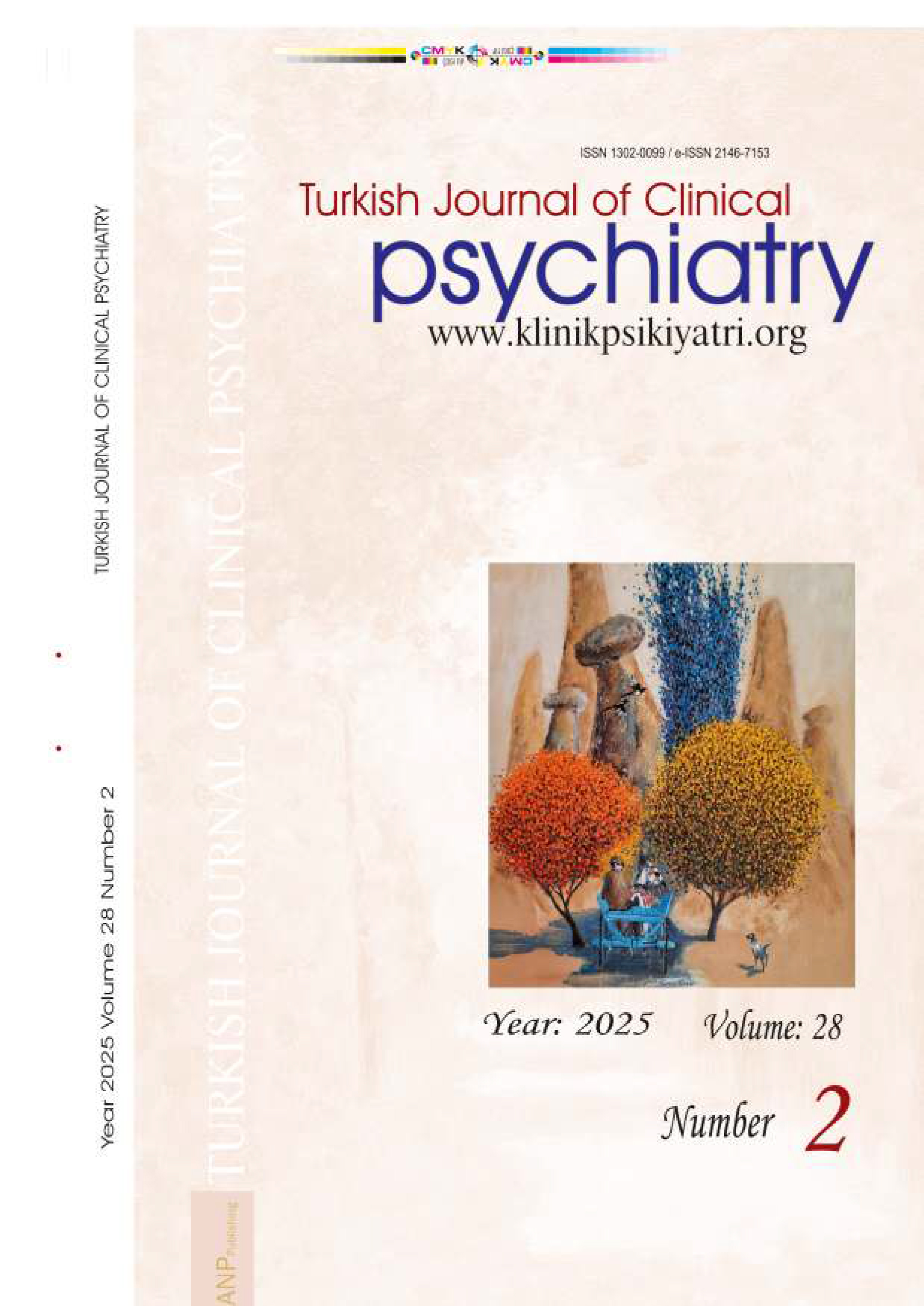





Volume: 4 Issue: 3 - 2001
| RESEARCH ARTICLE | |
| 1. | Chronic Obstructive Pulmonary Disease and Depression Fevzi ATACANLI, Nesrin DİLBAZ Pages 147 - 153 Chronic obstructive pulmonary disease (COPD) is a chronic debilitating, organic disease that might cause frequently some psychiatric disturbances, especially depression. The purpose of this study is to determine the frequency of depression in hospitalized COPD patients. In addition, the association of depression and age, sex, marital status, socioeconomical level, education profile, occupation, history of systemic disease, smoking and steroid treatment were also analysed. This study was performed at Atatürk Chest Disease and Chest Surgery Center during January- February 2000 and 100 COPD hospitalized patients were randomly selected and enrolled into this study. To be included in the study patients should fulfil the criteria of FEV1 were less than %75. The patients should be literate to fill out the inventories. The patients included in the study should not have psychiatric disease history. The diagnosis based on Prime MD. In order to measure the level of depression. Beck depression inventory (BDI) and hospital anxiety and depression scale were filled out by the patients. The statistical analyses of data were performed with; chi-square, Fisher's exact chi-square, free t test, Spearman correlation and mann-whitney U test. p<0.05 was accepted as statistically significant. |
| 2. | Mood Disorders in Stroke Patients Göksel BAYAM, Nesrin DİLBAZ, Elvan Özalp, Hatice GÜZ Pages 154 - 165 The aim of this study is to determine the prevelance of poststroke depression and evaluate the relationship of the lesion localization and prevelance of poststroke depression. 50 patients who had acute stroke and whose mini mental state examination scores higher than 17 were included in the study. %I4 of the patients were diagnosed as mood disorder due to general medical condi-tion with depressive features, %36 mood disorder due to general medical condition with major depressive-like episode, %2 mood disorder due to general medical condition with manic features and %12 adjustment disorder with depressed mood due to DSM- IV criteria. We found left hemispheric lesions, subcortical and frontal lesions were significantly associated with an increased frequency of major depression |
| REVIEW | |
| 3. | Akut İnme Sonrası Gelişen Patofizyolojik ve Nöropsikiyatrik Sonuçlar Nesrin DİLBAZ Pages 166 - 174 Cerebrovascular disease is one of the most common life-threatening problems among the elderly population. Numerous emotional and behavioral disorders occur following cerebrovascular diseases. In this review the definition, the classification and the cerebral and systemic pathophysiological results of cerebrovascular disease reviewed and the most frequent psychiatric complications such as depression, anxiety, mania, emotional lability and psychosis discussed. |
| 4. | Psychiatric Aspects of HIV Infection and AIDS Can CİMİLLİ, Burak BAYKARA Pages 175 - 181 In this article on psychiatric aspects of HIV infection and AIDS, psychiatric disorders which increase the risk of HIV infection, psychological characteristics of AIDS, psychoimmunological research on HIV infection, psychiatric disorders which accompany HIV infection, basic principles of psychopharmacotherapy and psychotherapy in HIV (+) patients were reviewed and psychological phenomena related with AIDS such as fear of AIDS and psychological problems of caregivers were described. |
| 5. | Anxiety in Surgery Can CİMİLLİ Pages 182 - 186 The prevalance of anxiety symptoms in the general hospital population is 10-30%. The aim of this article is to make a brief summary of the importance and the psychological meaning of anxiety in surgical patients and also the types of anxiety disorders, pre-operative and post-operative anxiety and review the theoretical approaches of some authors. |
| 6. | Approaches to the Patients with Didem ÖZTOP, Atilla SOYKAN Pages 187 - 192 Patients' psychological and emotional problems, personality style, defense mechanisms and relations with the staff play an important role on the etiology, prognosis and treatment of the medical in-patients. In this case report, an in-patient with emotional, psychological and marital problems who exhibits border-line defenses during her stay in gastroenterolgy service was presented. The patients' borderline defenses have caused some difficulties in the relationship with the staff that initiated psychiatric consultation. In this context, the consultation- liaison psychiatry assessment and interventions, such as individual counseling, psychometric assessment, staff meetings for approaching and dealing with this kind of patient, were discussed. |
| 7. | Systemic Family Approach to Chronic Illness and Disability Verda Tüzer Pages 193 - 201 In this article, a family approach model oriented towards families facing chronic and life-threatening conditions which includes psychoeducation, assessment and interventions, will be described. This model integrates the systemic view and capabilities of modern medicine and allied health, to assess the adaptation of a family to serious illness, with a view to life cycles and current developmental phases of the family. |
| 8. | Dementia in Consultation Liaison Psychiatry Çiğdem AYDEMİR, Cebrail KISA Pages 203 - 211 In Turkey, like other developing countries, as a result of increase in life expectancy; the ratio of elderly in the general population is going up. This population change causes an increase in the prevalance of medical and psychiatric problems of old people. Risk of dementia increases twice each five year after the sixth decade. Dementia is six times more frequent in aged hospitalized people than healthy individuals. In hospitalised patients; psychiatric consultation is required because of dementia itself and psychiatric consequences of dementia in medical conditions and changing enviroment. In this section; dementia and approach to demented patients in medical settings are discussed. |










